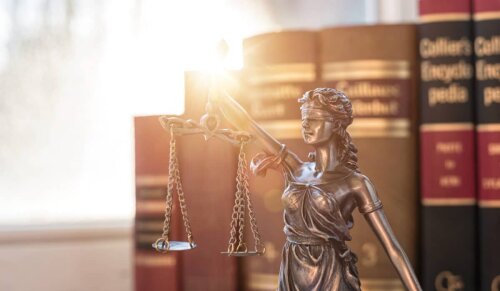Best Defamation Lawyers in Washington
Share your needs with us, get contacted by law firms.
Free. Takes 2 min.
Or refine your search by selecting a city:
List of the best lawyers in Washington, United States
About Defamation Law in Washington, United States
Defamation law in Washington, United States is designed to protect individuals and organizations from false statements that can harm their reputation. Defamation includes both libel, which refers to written or published statements, and slander, which covers spoken statements. The law seeks to balance protecting the reputation of individuals with the right to freedom of speech. In Washington, a person who has been defamed can potentially file a civil lawsuit to recover damages for any harm suffered as a result of the defamatory statements.
Why You May Need a Lawyer
There are several situations where it may be necessary to consult a lawyer for defamation issues in Washington:
- You have been publicly accused of misconduct or crime, and the claims are false.
- A business competitor is spreading damaging and untrue rumors about your company.
- You are being sued for defamation and need to defend yourself against the claims.
- Harmful statements about you have been published on social media or in news outlets.
- You are unsure whether a statement qualifies as defamation or protected opinion.
- You want to understand the likelihood of success if you pursue or defend a claim.
Navigating defamation law can be complex due to various legal defenses and exceptions, so an experienced attorney can help assess your situation, preserve evidence, and advocate for your interests.
Local Laws Overview
Washington's defamation laws have specific features that distinguish them from other states. Key aspects include:
- Public vs. Private Figures: If you are a public figure, you must prove that the statement was made with actual malice, meaning the person knew it was false or acted with reckless disregard for the truth. For private individuals, negligence in publishing the false statement is usually sufficient.
- Statute of Limitations: You generally have two years from the date of the defamatory statement to file a lawsuit in Washington.
- Privilege and Defense: Some statements are considered privileged or protected, such as those made in court proceedings or legislative debates. Truth is also a complete defense to a defamation claim.
- Damages: Plaintiffs may be awarded both actual and punitive damages if they can prove malice or egregious conduct.
- Retractions: In some cases, a timely retraction can mitigate damages.
- Online Defamation: Statements made on the internet or social media are subject to the same laws as traditional media.
Frequently Asked Questions
What qualifies as defamation under Washington law?
A statement is considered defamatory if it is false, published to a third party, and results in harm to the reputation of an individual or business.
Is there a difference between libel and slander?
Yes. Libel refers to written or published defamatory statements, while slander refers to spoken defamatory statements.
Can opinions be considered defamation?
No. Generally, expressions of opinion are not considered defamation because they cannot be proven true or false. Only statements of fact can be defamatory.
Do I need to prove damages to win a defamation lawsuit?
In some cases, damages are presumed, especially for statements involving crimes or moral conduct. However, in most cases, you will need to show how the statement caused actual harm.
What is the "actual malice" standard?
If the plaintiff is a public figure, they must prove that the defamatory statement was made with knowledge of its falsity or reckless disregard for the truth.
How long do I have to file a defamation claim in Washington?
The statute of limitations for defamation in Washington is generally two years from the date the statement was published or spoken.
Is a retraction of a defamatory statement enough to avoid a lawsuit?
A retraction can reduce the damages but does not necessarily prevent a lawsuit from being filed.
Are statements made online treated differently?
No. Defamatory statements made online or on social media are subject to the same legal standards as other forms of communication.
What defenses exist against a defamation claim?
Common defenses include truth, opinion, privilege (such as statements made in legal proceedings), and lack of harm.
Who can I sue for defamation?
You may pursue legal action against an individual, business, or organization that made the defamatory statement about you or your business.
Additional Resources
If you are seeking more information or support regarding defamation in Washington, consider the following resources:
- Washington State Bar Association: Offers referrals and legal information.
- Local county or city legal aid organizations: Provide assistance to eligible individuals.
- Washington Courts: Information about filing civil lawsuits and court procedures.
- Law libraries and online legal information portals: For self-research and education.
Next Steps
If you believe you are a victim of defamation or have been accused of making defamatory statements in Washington, consider taking the following steps:
- Document the statement in question and preserve any evidence (screenshots, recordings, correspondence).
- Make note of where and when the statement was published or spoken.
- Gather information on how the statement has impacted you personally or professionally.
- Consult with an attorney who specializes in defamation or civil litigation in Washington to evaluate your options.
- Be mindful of the two-year statute of limitations and act promptly.
An attorney can assess the merits of your case, advise you on the likelihood of success, represent you in negotiations or court, and help protect your reputation and rights under Washington law.
Lawzana helps you find the best lawyers and law firms in Washington through a curated and pre-screened list of qualified legal professionals. Our platform offers rankings and detailed profiles of attorneys and law firms, allowing you to compare based on practice areas, including Defamation, experience, and client feedback.
Each profile includes a description of the firm's areas of practice, client reviews, team members and partners, year of establishment, spoken languages, office locations, contact information, social media presence, and any published articles or resources. Most firms on our platform speak English and are experienced in both local and international legal matters.
Get a quote from top-rated law firms in Washington, United States — quickly, securely, and without unnecessary hassle.
Disclaimer:
The information provided on this page is for general informational purposes only and does not constitute legal advice. While we strive to ensure the accuracy and relevance of the content, legal information may change over time, and interpretations of the law can vary. You should always consult with a qualified legal professional for advice specific to your situation.
We disclaim all liability for actions taken or not taken based on the content of this page. If you believe any information is incorrect or outdated, please contact us, and we will review and update it where appropriate.
Browse defamation law firms by city in Washington
Refine your search by selecting a city.











